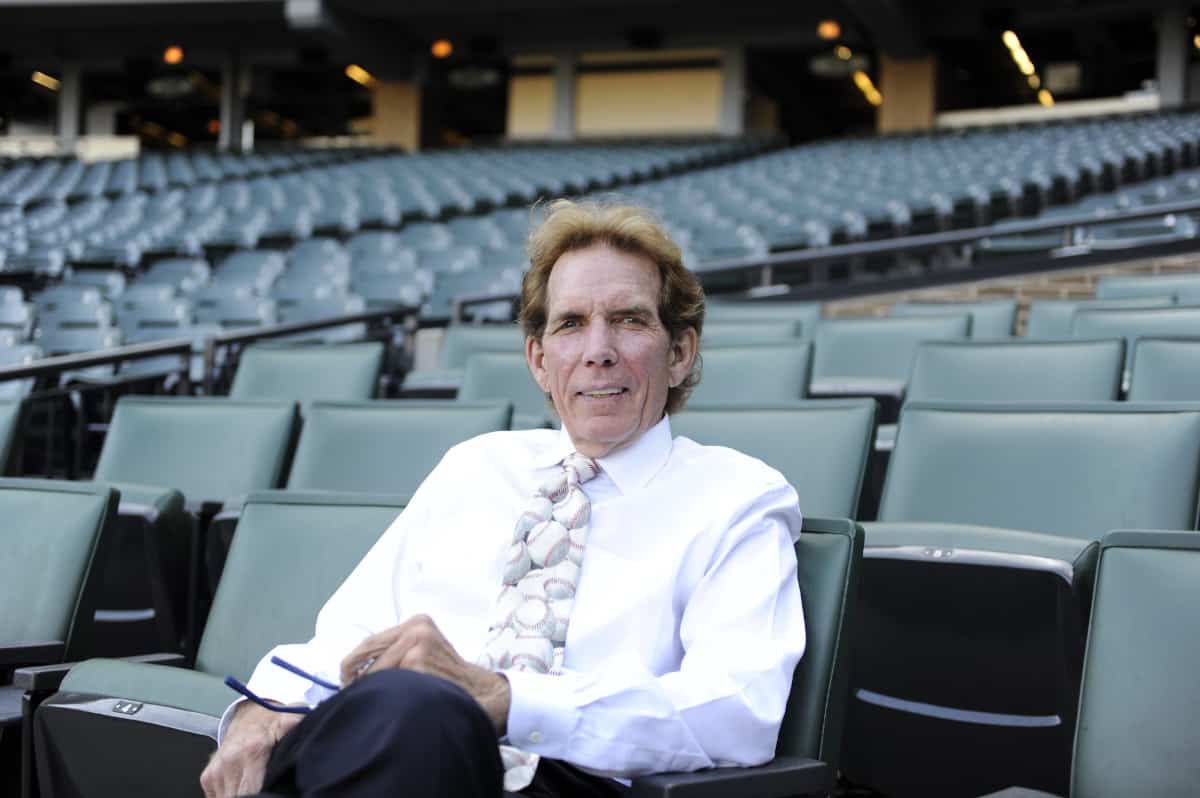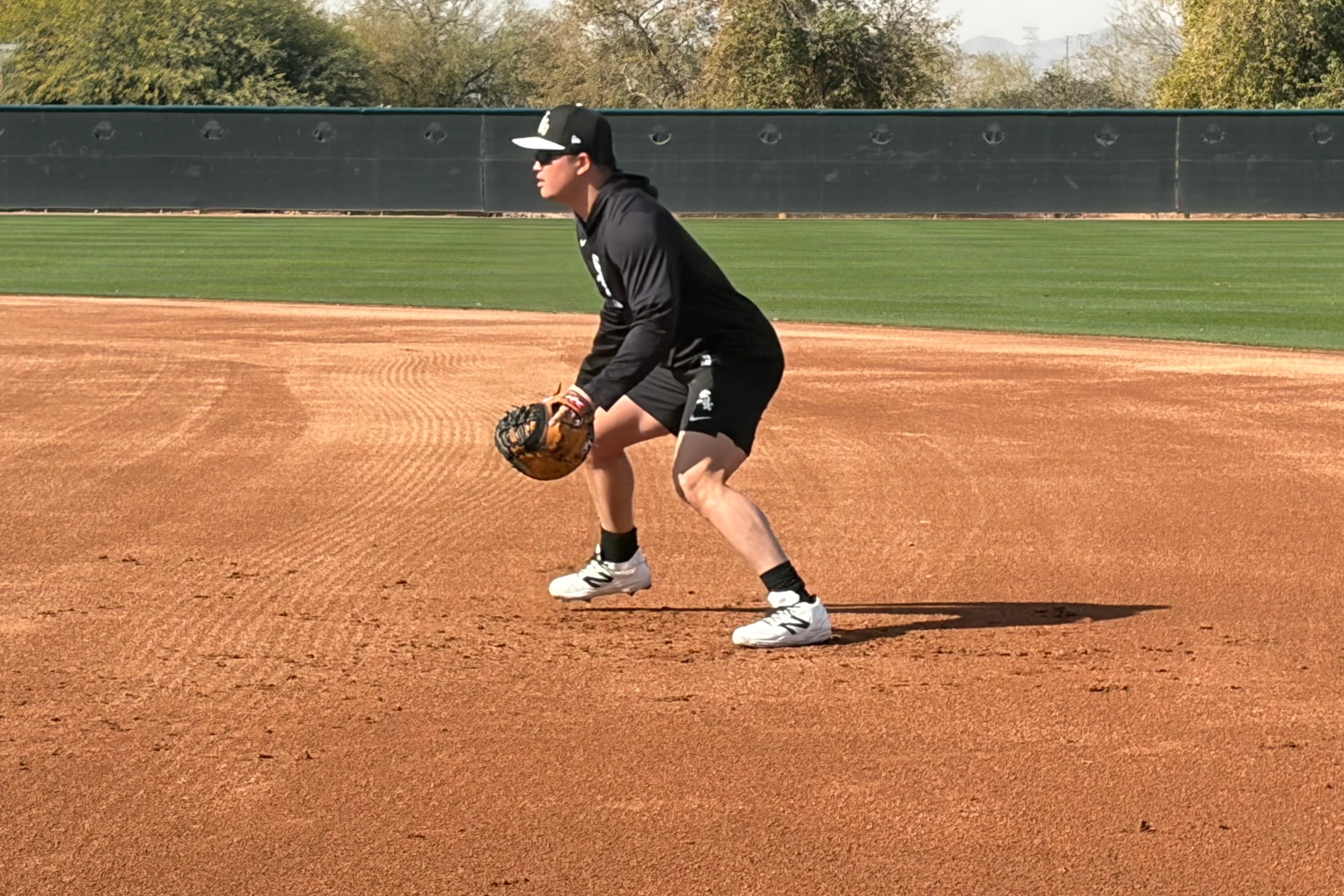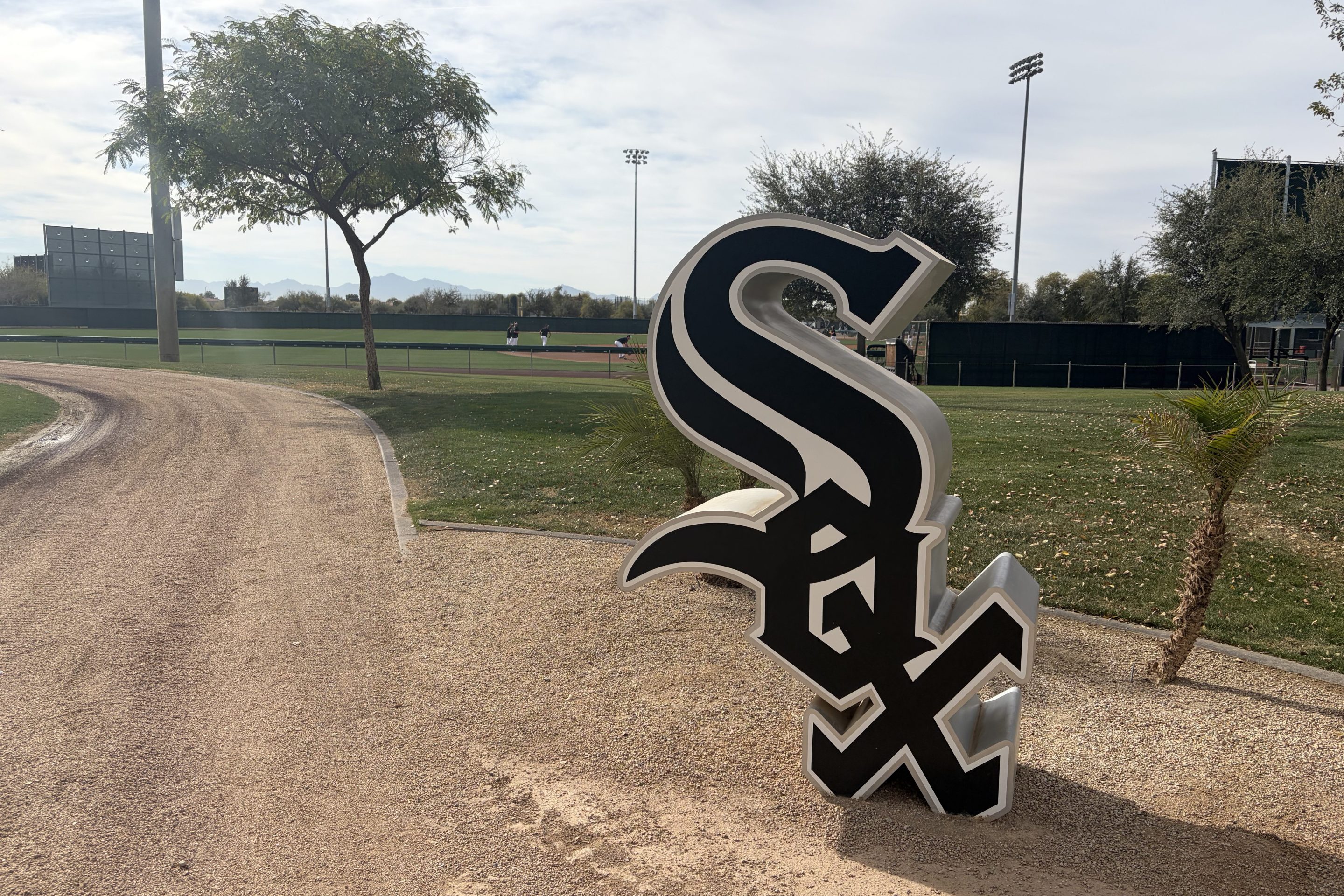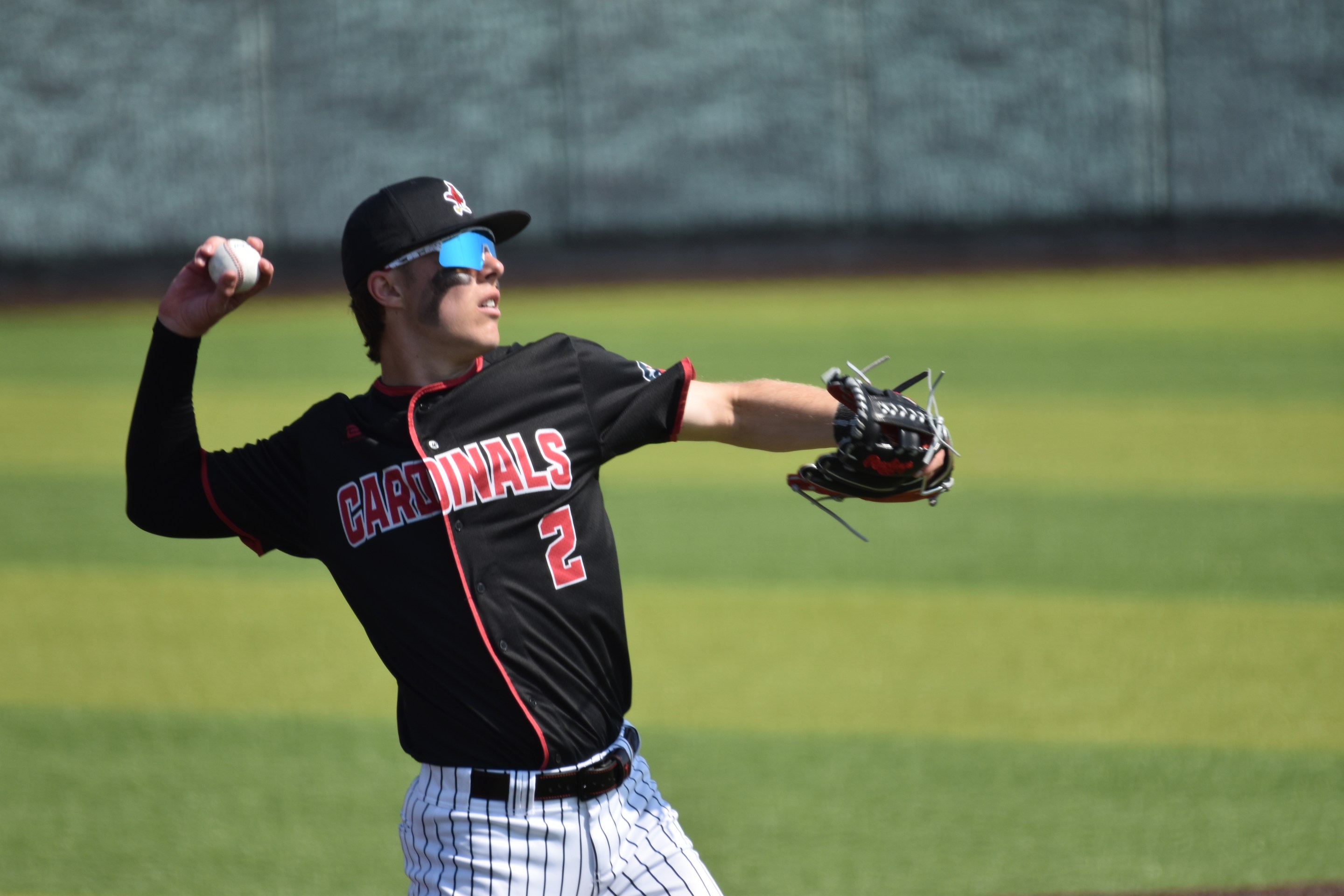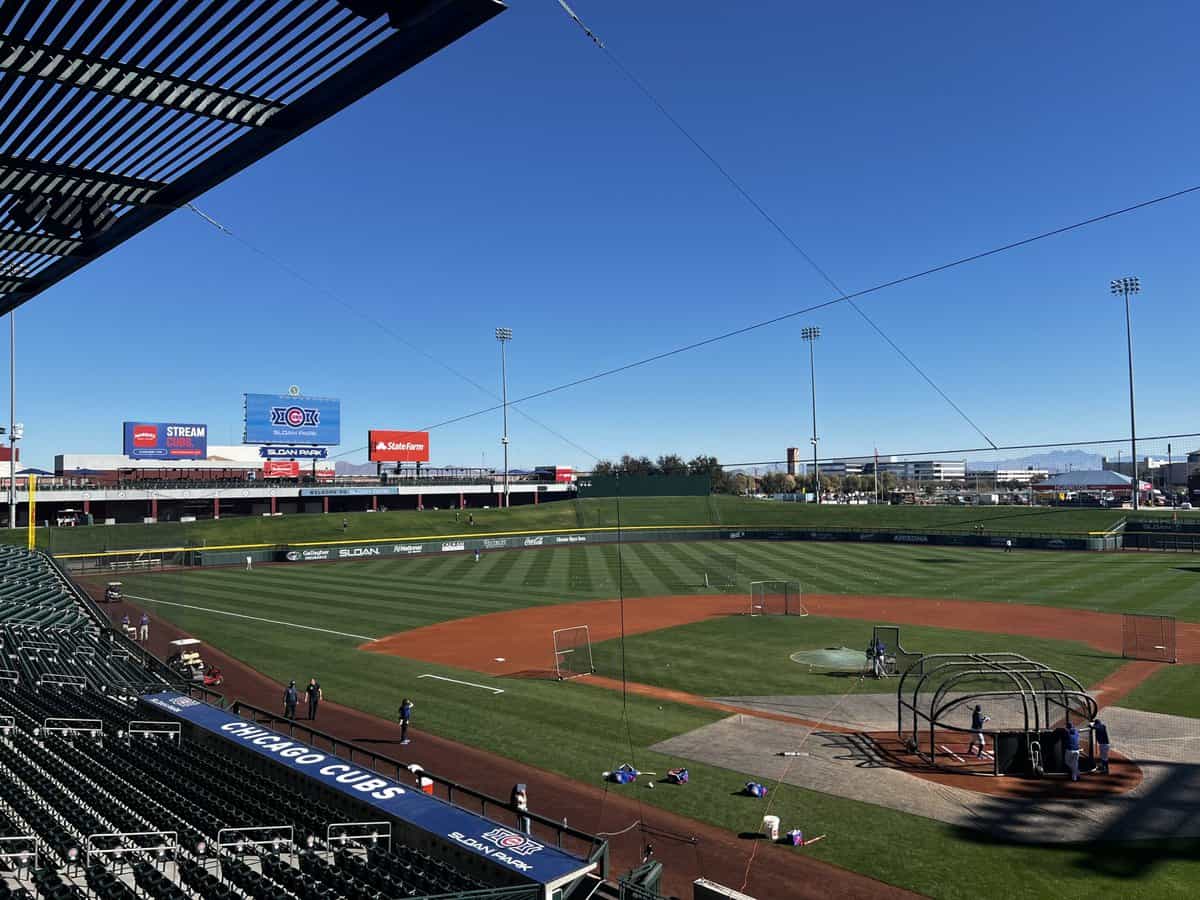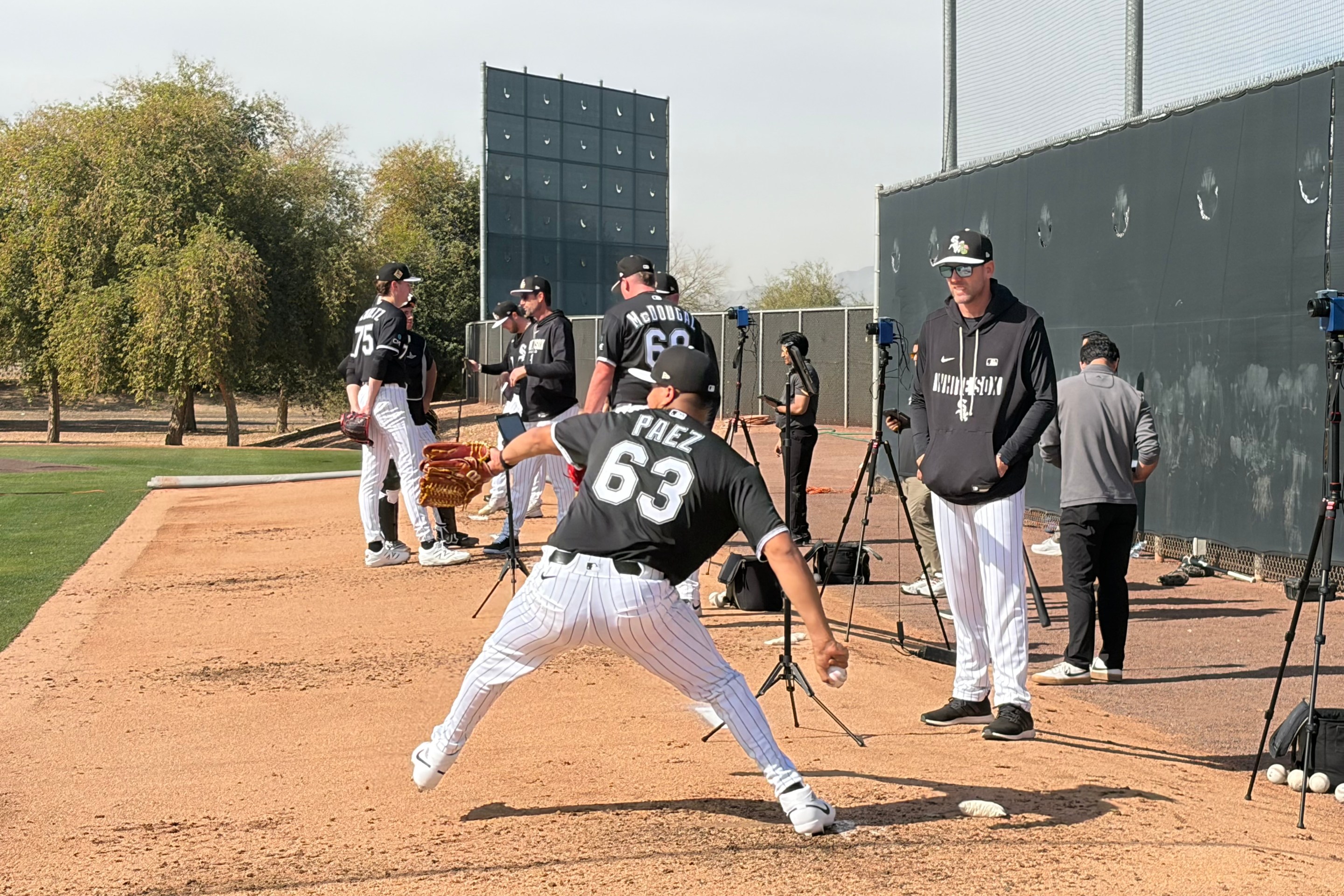Among the many complications and misfortunes posed by the coronavirus crisis, any immediate Ed Farmer memorial won't get the staggering turnout it deserves.
Among the few benefits of the sports stoppage, there's nothing but time to read about talk about Farmer's life.
And so many people want to talk about Farmer's life. James Fegan said it took a long time to write his article about Farmer's passing because everybody he reached out to called him back.
I'd recommend reading that one, and a number of others.
*Adam Hoge called Farmer "the most interesting man I've ever met."
*Paul Sullivan said Farmer could be as stubborn as he was affable, but he probably had to be to deal with his condition.
*Ken Rosenthal linked to a story from 2019, which shows Farmer overcoming his stubborn streak during his Baltimore scouting days to give Mike Mussina one more look.
*Daryl Van Schouwen got a great quote from Paul Konerko: "He was on the Mount Rushmore of (White Sox characters). He wasn't really in our world, I think we were in his."
*Bruce Levine said it was a pleasure to be able to owe Farmer a favor, because Farmer was always there when somebody needed help.
*Barry Rozner said he always guessed that Farmer's "rebirth" after receiving a kidney transplant from his brother is what made him so willing to search and connect.
And Illinois Secretary of State Jesse White also paid tribute to Farmer, who did as much as anybody to advance the cause of organ donation in the state.
* * * * * * * * *
All these memorials, recollections and tributes made me sad that I never got to meet him, but it made me happy that I ended up getting him.
That understanding wasn't immediate, at least in his work as a play-by-play man. Like everybody else, I found his work as an analyst alongside John Rooney easy on the ears. Rooney, with the big, dynamic voice, and the willingness to ham it up for comedic effect, paired well with Farmer's largely unaffected delivery and dry sense of humor. They could have lasted forever as far as I'm concerned, but Rooney left for his hometown of St. Louis, and the Sox had to shift.
Going from a Rooney-Farmer booth to a Farmer-led booth with a rookie in Chris Singleton was a step back, like when a mid-major basketball program promotes the well-liked assistant after a Power Five program poaches the head coach. It's not necessarily a bad idea on its face, especially on short notice, and it works once in a while, but reclaiming past glory usually requires a future-looking arrangement.
Part of the problem was that Farmer's unique presence made a natural, traditional on-air partnership hard to forge. Singleton, who has since proven himself to be a reliable listen on ESPN's national radio broadcasts, showed that the White Sox weren't wrong in identifying him as a talent worth trying. He probably would have clicked faster with a Rooney type, who left all the analysis for the ex-player and created natural speaking lanes to fill. In this case, Farmer's history as an accomplished reliever allowed him to shift from play-by-play to analysis (and sometimes to inside joke to non sequitur) on his own, leaving the other guy to wonder what's left. Somebody without an experienced broadcast style would have a hard time developing one that fit, and even a veteran like Steve Stone couldn't tailor his for Farmer's delivery.
Darrin Jackson also faced an adjustment when the White Sox shifted him from the TV to radio, and from the listener's side, it seemed like he carved his spot into the broadcast with forays into goofiness, which was one thing Farmer wouldn't cover himself. The problem -- or "problem" -- was that Farmer seldom audibly indulged them, which gave the broadcast an oil-and-water anti-chemistry.
I didn't understand it the first few years, and it made me feel like the White Sox's excessive loyalty led them into another pairing they couldn't bring themselves to break up, even if the benefits were limited to the paychecks.
For those dropping in occasionally, especially for objective purposes, they really didn't take to it. While FanGraphs and Awful Announcing regularly posted annual reviews of the TV broadcast booths, the only radio ranking I can find is from FanGraphs in 2016. It's not kind. Farmer and Jackson ranked 29th out of 30th, and the feedback sounds familiar:
Representative Reader Comment
“They can both get kind of weird in their attempts to play off each other.”
Notes
A number of comments regarding the White Sox’ away television broadcast suggested that, whatever their merits as individuals, that Hawk Harrelson and Steve Stone gave the impression — on air, at least — of never having become bosom friends. Multiple respondents suggest that the club’s radio broadcast team suffers from a similar lack of compatibility.
By 2016, it was apparent to regular listeners that Farmer and Jackson were incredibly close friends. Whereas Harrelson and Stone were audibly and visibly distant, and Hawk would later boast about never dining with Stone in his autobiography, Farmer and Jackson sounded attached at the hip on the road. The concept of broadcast partners enjoying each other's company made me listen for that connection, and the blowup in Detroit's TV booth would show that friendship between seemingly amiable partners can't be taken for granted.
If you didn't know how close Farmer and Jackson were -- and it might've been impossible to discern with any small sample of listens -- it was a much different experience.
I mentioned this on the podcast, and on Twitter a couple years ago, but I remember coming into the newsroom after my colleague, a largely nonpartisan baseball fan, listened to his first Farmer/DJ broadcast on the way home from work the previous night. He had so many questions...
His final review: "It was impossible to listen to and I couldn't turn it off."
I kept that in mind when tuning into the game on the way home. Sure enough, Farmer and Jackson refuted each other's previous sentence four times over 15 minutes. I then listened for that dynamic from other broadcast booths and never found it. Sure, Stone will make a show out of disagreeing with Jason Benetti for fun and profit, but it's usually when Benetti is playing devil's advocate or suggesting something outlandish to get through a blowout. Farmer and Jackson disagreed about more basic things like pitch identification and outfield routes. They also cut down each other's setups, and they didn't accept each other's tangents.
It sounds antagonistic, but part of it was that dry humor, and another part was mere honesty. One of the leifmotifs of the Farmer memorials was his directness, his lack of a façade. It was one of his standout attributes, but Jackson said he had to warn people who weren't ready.
“I would go up to them and say, ‘Hey, you haven’t met my partner yet, Ed Farmer. He’s going to come up to you. Be ready. He means no harm. He’s going to say something to you, and you are going to look at him and think he’s crazy or he’s trying to offend you and that’s not the case,’” said Jackson during a Thursday evening conference call. “Multiple players would come back to me and go, ‘I see what you mean.’
If Farmer saw something, he said something, so if he didn't agree, he didn't agree. In turn, if Jackson didn't agree, he gave it back. It's remarkable that it was never personal. The broadcast just didn't have a way of warning the irregular listener of what they were about to experience.
Depending on one's mood or outlook, it could make for either frustrating or fascinating listening. It didn't always click for me. Some days I just couldn't devote the mental resources to mining the give-and-take or holding out for the score, and I'd wish the Sox had something more along the lines of Pat Hughes' hammock of a voice, or Tom Hamilton's overstuffed recliner, rather than an abstract piece of Scandinavian furniture that defies you to relax.
But on a three-hour drive where I could let it all unfold, I came to embrace their unusual dynamic. While those offering tributes to Farmer say his bottomless supply of stories may have stretched the truth, nothing about the broadcast was a lie. If he and DJ disagreed, they said so. They enjoyed needling each other, so they did. When they used the word "friend," they meant it. When both raised their voices, something big happened. And when hosting a guest in the booth promoting a cause, nobody in any broadcast booth sounded more interested in the person than Farmer, offering a heartfelt farewell -- usually in the form of a "God bless you" -- on the way out.
When Hawk Harrelson retired, it was pretty clear what we were going to miss. The way he tells it, "Hawk" was a persona designed for public consumption and personal deflection, and he carefully crafted it over decades so that all his attributes became intimately familiar -- the catch phrases, the unadulterated homerism, the way he made good times feel great, and bad times feel miserable. The White Sox made the transition a gradual process, so we also had multiple years to take inventory of what Harrelson would take with him.
With Farmer, I'm not sure everybody knows exactly what they're going to miss on the airwaves. Part of it is that, aside from Andy Masur's increasingly frequent appearances in relief of Farmer over the last year, we didn't receive warning to steel ourselves for a sea change. The other part is that there was no apparent persona or artifice to Farmer's broadcast style. What you heard was what he was, and we might not realize everything that entailed until we hear somebody trying to fill his shoes. Especially if that person is wearing socks.
(Photo courtesy of the Chicago White Sox)
